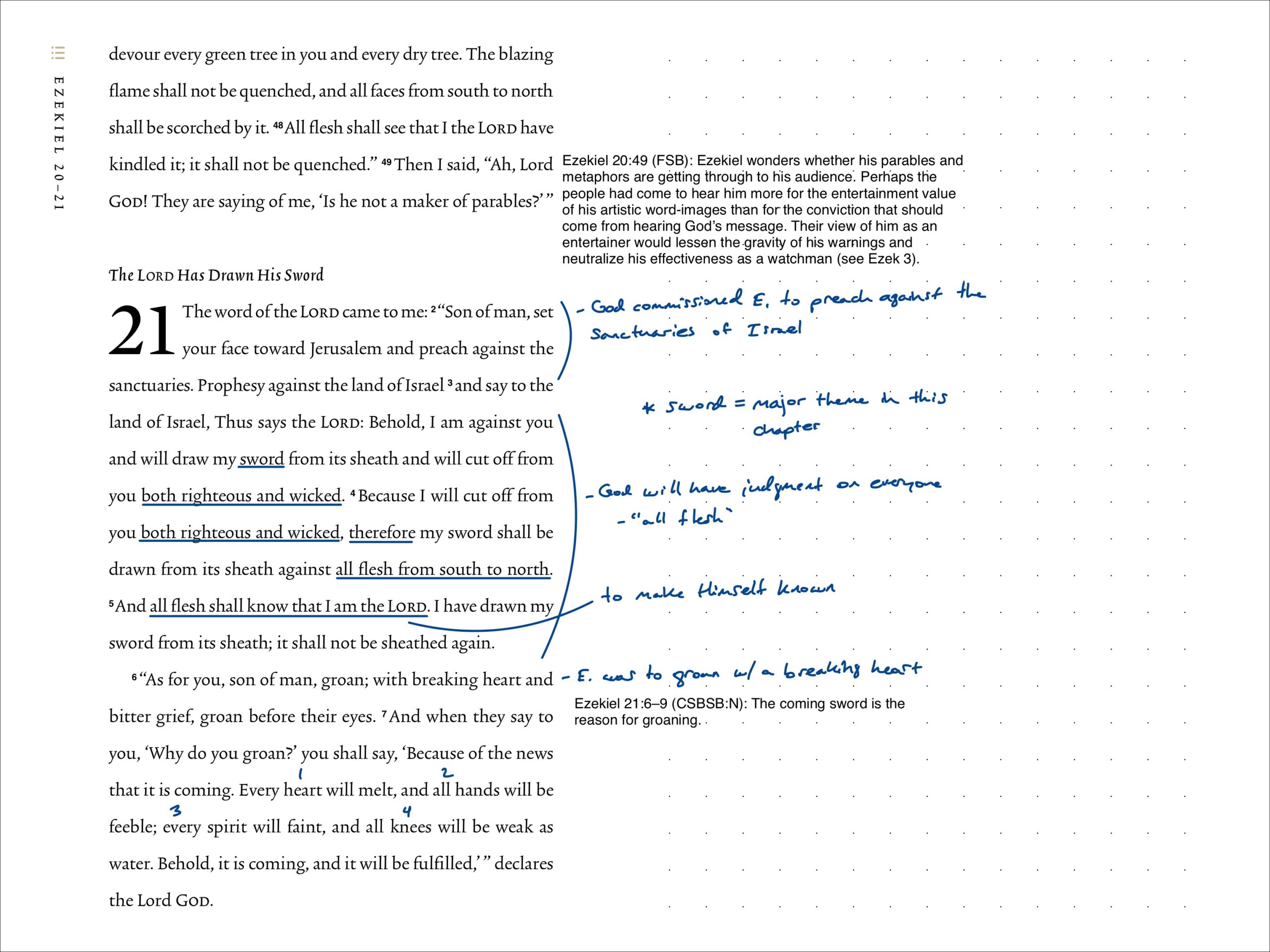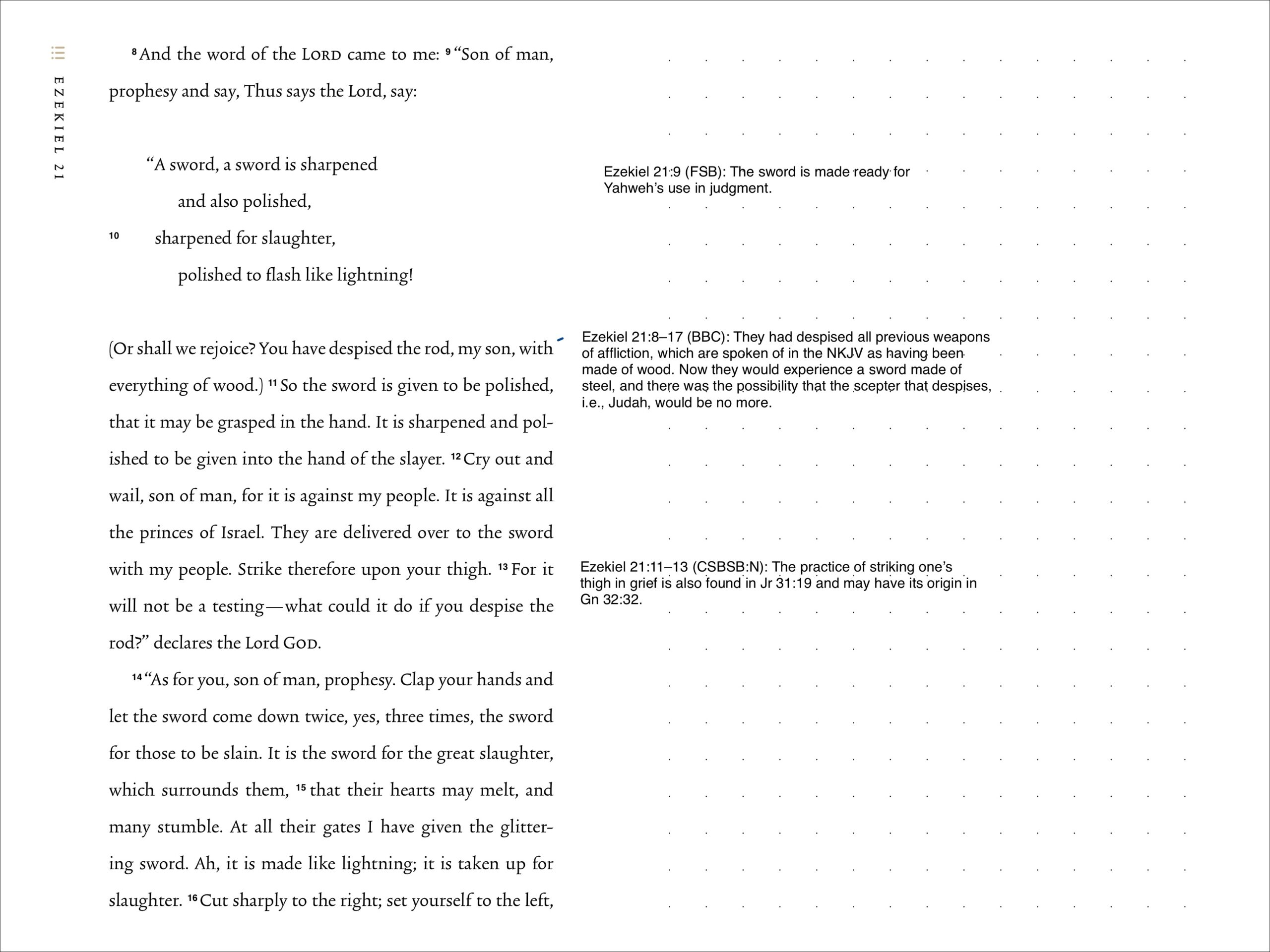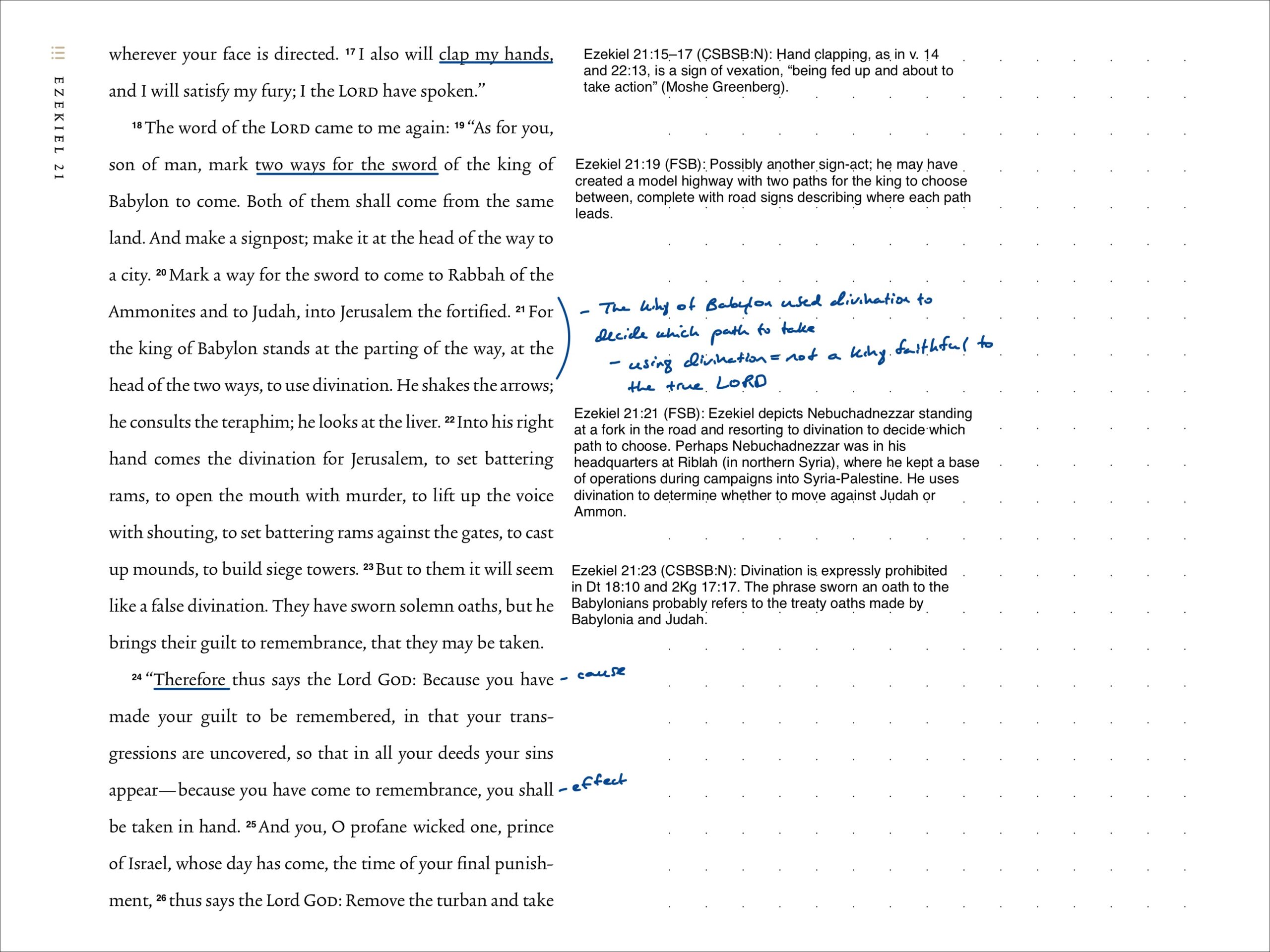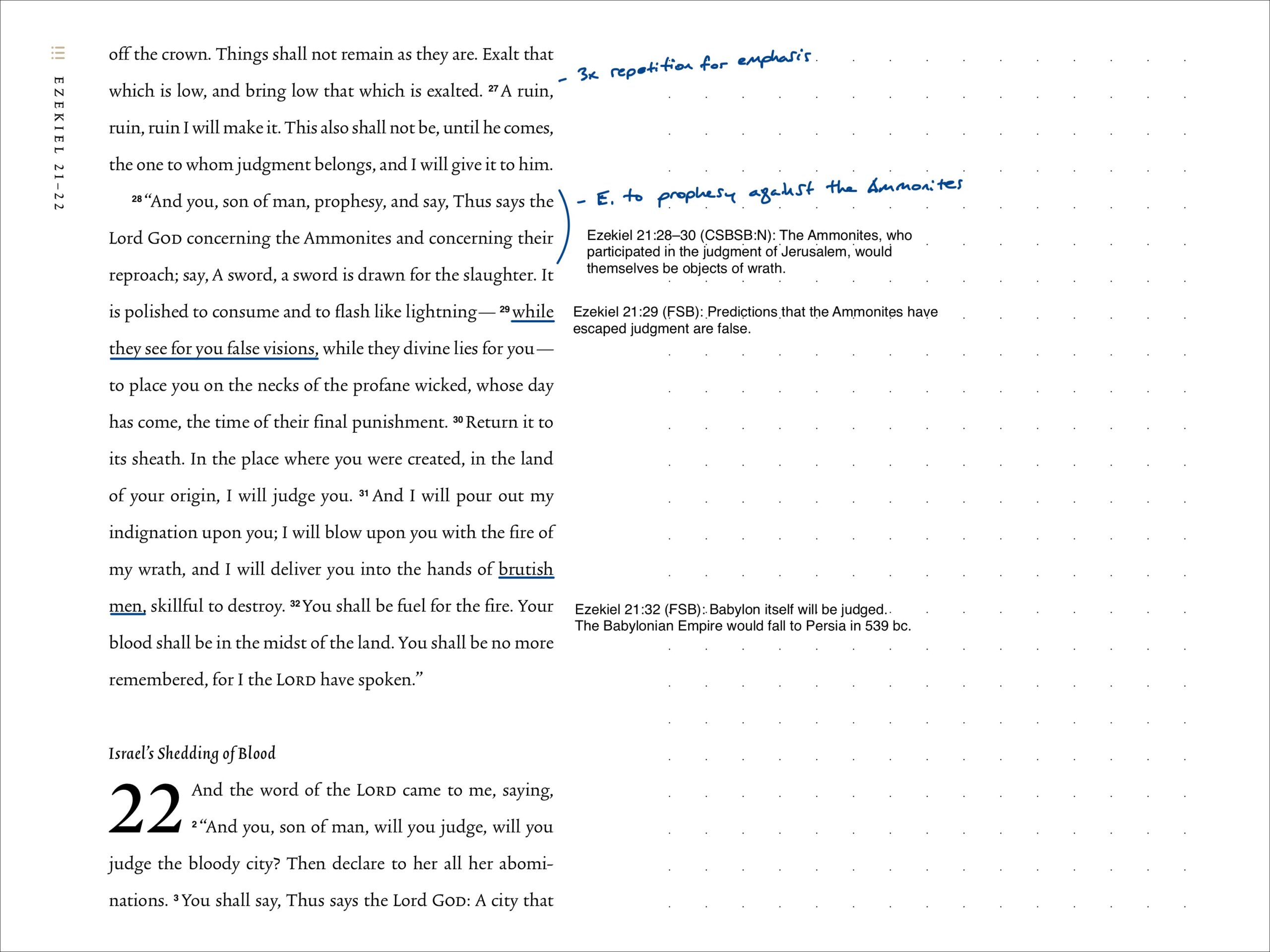| Date | Version | Reading Plan |
|---|---|---|
| @September 11, 2023 | ESV (2016) | ESV Prophets Plan 2023 |
Pericopes
- The Lord Has Drawn His Sword
Notes
The chapter opens with God commissioning Ezekiel to preach against the sanctuaries of Israel which were likely the local shrines used for idol worship. He is to tell them that God has drawn His sword to cut off from them both “righteous and wicked”. God will unsheathe His sword against “all flesh from south to north”, following the pattern of fire judgment in Ezek. 20:47-48. This was so that all flesh would come to know that He is the LORD (Ezek. 21:5).
In Ezek. 21:6-13, God tells Ezekiel to groan “with breaking heart and bitter grief” before their eyes. The reason for the groaning was the coming sword, that 1) every heart will melt, 2) all hands will be feeble, 3) every spirit will faint and 4) all knees will be weak as water (Ezek. 21:7). A sword is being made for God to use in judgment (Ezek. 21:9). The people had “despised the rod” of previous weapons of affliction made of wood (Ezek. 21:10). Now they would experience a more formidable weapon, a sword made of steel (Ezek. 21:11).
In Ezek. 21:14-17, Ezekiel is told to clap his hands and “let the sword come down twice, yes, three times, the sword for those to be slain”. The clapping of hands is a sign of vexation, associated with God’s wrath and should be viewed here as an expression of anger (see Ezek. 6:11).
In Ezek. 21:18-23, God tells Ezekiel to “mark two ways for the sword of the king of Babylon to come” (Ezek. 21:19). This is possibly another sign-act by Ezekiel in creating a model highway with two paths from which the king would choose. Ezekiel depicts Nebuchadnezzar as standing at a fork in the road and resorting to divination to decide which path to choose (Ezek. 21:21).
In Ezek. 21:24-27, judgment is announced that they shall be taken in hand because they had come to remembrance of their sins and transgressions. The day of punishment for the “wicked one” had come, referring to King Zedekiah who would be taken to Babylon (Ezek. 21:25). Nothing will remain as it was and God will make a ruin of all of it (Ezek. 21:26-27).
In the final section (Ezek. 21:28-32), God instructs Ezekiel to prophesy against the Ammonites. They had participated in the judgment against Jerusalem but would themselves become objects of God’s wrath. False divinations had been given that the Ammonites escaped judgment (Ezek. 21:29). Following God’s use of Babylon as a sword of judgment, it was no longer needed and was to return to its sheath (Ezek. 21:30). God’s wrath would come on Babylon itself to be “fuel for the fire” in judgment and shall no more be remembered (Ezek. 21:32). The Babylonian Empire fell to Persia in 539 BC.
Application
This chapter depicts God’s judgment as a sword against Jerusalem. The word “sword” is used 15x in reference to the Babylonian invasion which would then be sheathed after its use. Babylon would then to succumb to the fire of God’s wrath themselves. However, prior to the Babylonian takeover, we see Ezekiel’s assignment to groan and have a heart of bitter grief in the presence of the people over what is to transpire.
Similar to a couple chapters ago, this provides for us an example of proper sorrow for sin at a large scale. Worth noting is that Ezekiel was to groan “before their eyes” (Ezek. 21:6). It seems through this that our grief over sin should be expressed in a way that it can be seen (and hopefully equally felt) by others. As we speak about the fallenness of this world, the brokenness of our hearts should spill over onto our faces and gestures. It should be apparent that we acknowledge the way things are as being far from God’s original design. However, we are not to remain in this state of despair forever. Instead, this should lead us to the heightened appreciation of God’s intervention to restore and redeem. Jesus has come to conquer sin and we are co-heirs with Him in this ultimate victory.
Scripture Journal Notes
Commentaries & Resources Used
- ESV Study Bible. (Wheaton, IL: Crossway, 2008)
- Faithlife Study Bible (Lexham Press, 2016)
- Believer’s Bible Commentary (Thomas Nelson, 2016)
- CSB Study Bible Notes (Holman Bible Publishers, 2017)
- Matthew Henry’s Commentary on the Whole Bible (Guardian Press, 1976)
- The Bible: A Reader’s Guide (Sterling Publishing, 2011)
- The Infographic Bible (Zondervan, 2018)
- ESV Digital Scripture Journal (Crossway, 2019)



